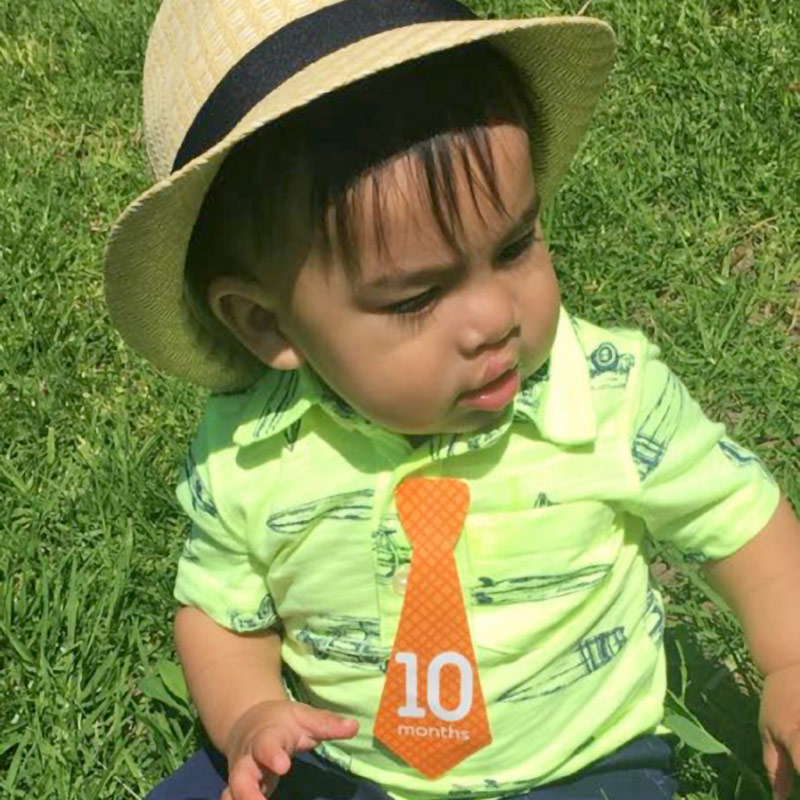Expectant mother, Roxana Mora, went in for an ultrasound expecting a routine update on her baby’s development. Instead, her ultrasound revealed that her son’s mouth was not completely developed. Her obstetrician suspected a craniofacial deformity, but wanted to confirm with a specialist.
Roxana was referred to the Stramski Children’s Developmental Center at Miller Children’s & Women’s Hospital Long Beach. The Craniofacial Program, within the Stramksi Center, specializes in treating children with congenital birth defects (present at birth), such as cleft lip/palate, skull or ear problems and other craniofacial abnormalities.
“My doctor gave me a phone number, told me to talk to their nurse, Judy, and she would take care of the rest,” says Roxana. “And that’s exactly what happened.”
Once in the care of the Craniofacial Program, it was confirmed that her son, Nolan, had a cleft lip and palate. Craniofacial defects, such as cleft lip and palate, are deformities in the growth of the head and facial bones, some of which are mild and others that are more severe and require surgery.
“Since Nolan’s defect was detected prenatally, our team was able to walk Roxana through the entire treatment process and offer emotional support while she learned about Nolan’s diagnosis,” says Judy Walker, RN, Craniofacial Program, Stramski Center, Miller Children’s.
At Miller Children’s, treatment is determined by not just one doctor, but a multi-disciplinary team of specialists consisting of a plastic surgeon, orthodontist, oral surgeon, pediatrician, audiologist, speech pathologist, pediatric dentist and geneticist.
Before he was even born, Roxana was faced with the reality that Nolan would need three or four surgeries to correct his cleft lip and palate.
“The truth is that the pregnancy was very stressful,” says Roxana. “I cried a lot and had a lot of worry and fear, but it helped to have the support of my family, my husband and mom throughout my pregnancy.”
Nolan was born at the Cherese Mari Laulhere Birthing Center at Miller Children’s in May 2016. He would need his first surgery just a few months after birth. In order for doctors to operate, Nolan would need to stay healthy.
“When Nolan was born, I cried so much, but the care team always told me ‘your baby is perfect, his heart is healthy; all he needs is some surgery’,” says Roxana. “The care team gave me a lot of confidence and support. Even though I was nervous and anxious, they put themselves in my shoes and really helped me through a difficult time.”
Other than a common cold, Nolan remained healthy for the first months of his life and underwent his first surgery on Nov. 8, 2016. The surgery was successful and Nolan quickly returned to being a bubbly, happy baby.
Babies born with a cleft lip and palate often have problems with feeding. To ensure Nolan receives adequate nutrition, he has since been given a device to help him with eat. While the device is new, Roxana and Nolan are both working with the care team to learn how to use it.
Later this year, Roxana will meet with the care team to determine the date for Nolan’s second surgery. While having a child undergo surgery is never easy for parents, Roxana is at ease knowing Nolan’s care team is by her side.
Because correcting craniofacial deformities often takes multiple surgeries and a range of therapies over years, the Craniofacial Program treats children from birth to 21-years-old, and in cases like Nolan’s, even prenatally.
As Nolan continues to develop, the care team will be there to support both him and Roxana through whatever medical and emotional challenges they may face.
“The care and the support has been amazing,” says Roxana. “The care team has been very human and shown me and Nolan nothing but kindness. They have provided everything that my baby needs and more.”

